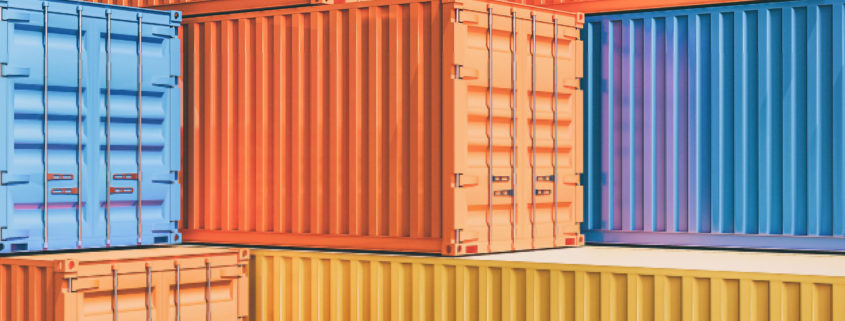Export container supply deficit forecast to turn; China’s renewed manufacturing and container shipping to bring surge in imports
Bruce Abbe, strategic adviser for trade and transportation
Industry sources are predicting the recent shortage of containers inland that U.S. exporters need to ship overseas is about to take a turn for the better.
China’s manufacturers are back at work. The rash of blank sailings of container vessel shipments – first engineered by the container shipping lines in recent months because of overcapacity, and more recently increased when China kept supply chain workers at home to help contain the coronavirus – are reportedly ending. The supply chain systems, particularly on the Trans Pacific, will soon shift into a surge of imports.
On a conference call Thursday organized by the Agriculture Transportation Coalition (AgTC), officials from the Port of Oakland pledged they will do everything in their power to keep their port functioning at maximum speed. The Port of Los Angeles and other West Coast ports have indicated the same.
The Northwest Seaport Alliance ports of Seattle and Tacoma are still operating as normal, but handling less cargo, CEO John Wolfe told American Shipper.
From February until now, the Port of Oakland had 20 blank sailings of vessels. The Journal of Commerce (JOC) reports that ocean carriers slashed more than 80 vessels from February through April on the Transpacific because of over-capacity. Now JOC reports that the container supply will soon move from famine to feast.
Oakland officials indicated to the ag exporters that no more blank sailings are expected as of this week, and imports are projected to surge, said Bob Sinner, president of SB&B Foods, Inc., and SSGA vice president, who participated on the call.
In time, that will lead to more import containers coming inland to the major container rail ramp locations.
However, in a much more unfortunate development on the container supply front, some SSGA member exporters have reported that more U.S. ethanol plants are shutting down operations and/or not offering bids to farmers for corn because of the recent sharp decline in oil supplies and gas prices. The oil price decline, coupled with the pending recession, is sapping demand for ethanol for fuel.
No ethanol means no distillers grains production from the U.S., a major user of containers for exports, notes Rob Prather of Global Processing, also an SSGA board member.
Prather, however, is more optimistic about export prospects for identity-preserved (IP) food grade soybean suppliers. In a recession, Asian consumers may choose to revert back to traditional nutritional soy foods, long a staple in their diets, and forego more expensive meats, he reasons.
Food and feed will continue to need to flow to the world’s consumers from the U.S. Keeping the global supply chains open, not just local supply chains, will be critical to see our way out of this one.







Leave a Reply
Want to join the discussion?Feel free to contribute!